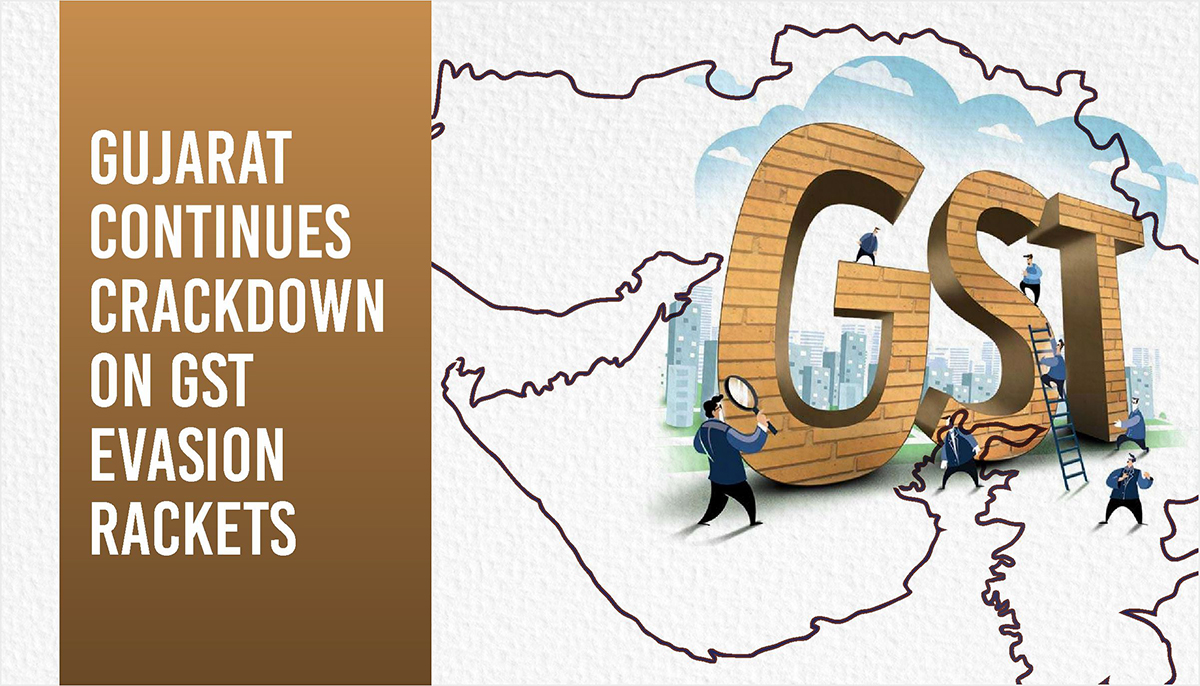Gujarat Continues Crackdown on GST Evasion Rackets

In a significant crackdown on tax evasion, state GST officials have conducted extensive raids, unveiling a network of suspicious financial activities among resorts and water parks in Gujarat. The investigations have highlighted a pervasive issue of GST evasion, highlighting the need for stringent oversight and compliance within the hospitality sector.
Details of the Raids and Findings
State GST officials recently executed raids at 18 resorts in the Gir Somnath and Dwarka districts. These raids revealed suspicious transactions amounting to Rs 16.29 crore. The resorts were accused of failing to deposit GST collected from tourists and engaging in under-the-table dealings to evade tax payments.
During the raids, it was discovered that resort managements were not issuing proper bills for room rentals and other facilities. Instead, they opted to collect payments in cash, thereby circumventing GST obligations. A source within the GST department stated, “Further investigations are underway as documentary evidence of massive unaccounted transactions has been found during the initial probe. The officers found that the resort managers were evading taxes by taking tax credits that were not legally due.”
Extending the Investigation to Water Parks
The scope of the investigation expanded to include 15 water parks in the region. These investigations uncovered shady transactions amounting to Rs 64 crore. The swift action by the GST department has shed light on a broader network of tax evasion practices among leisure and hospitality businesses. In addition to uncovering fraudulent transactions, officials seized Rs 7 crore during the raids. This significant seizure underscores the scale of tax evasion being perpetrated by these businesses and further highlights the need for stringent regulatory oversight.
Impact on the Hospitality Sector
The GST department is continuing its investigations to gather more evidence and identify all individuals involved in these illegal activities. The discovery of unaccounted transactions and illegal tax credits suggests a widespread issue that the authorities are determined to address.
This crackdown sends a clear message to the hospitality sector about the importance of compliance with tax regulations. It also highlights the GST department’s commitment to ensuring that businesses adhere to legal financial practices, thereby protecting the revenue interests of the state.
CID Crime Busted Major GST Bogus Billing Racket
In a related development, CID Crime on Thursday busted a major GST bogus billing racket, which was estimated to be worth Rs 1,000 crore. Acting on a tip-off, CID Crime teams raided an office located at Nirav Complex near Navrang School in Navrangpura, where they apprehended two individuals, Umang Vinod Darji and his associate Ravi Prakash Soni.
According to CID Crime, Darji and his accomplices used fake rubber stamps to generate counterfeit bills for gold, silver, various software products, cement, and other goods. These fake bills were then used by traders to claim fraudulent input tax credits. Darji charged a commission for providing these bogus billing services, facilitating large-scale tax evasion.
The recent raids by state GST officials have revealed extensive tax evasion practices among resorts and water parks in the Gir Somnath and Dwarka districts. With ongoing investigations and significant funds already seized, the authorities are taking decisive steps to clamp down on these illicit activities. Businesses in the hospitality sector are urged to comply with tax regulations to avoid severe penalties and legal action.
